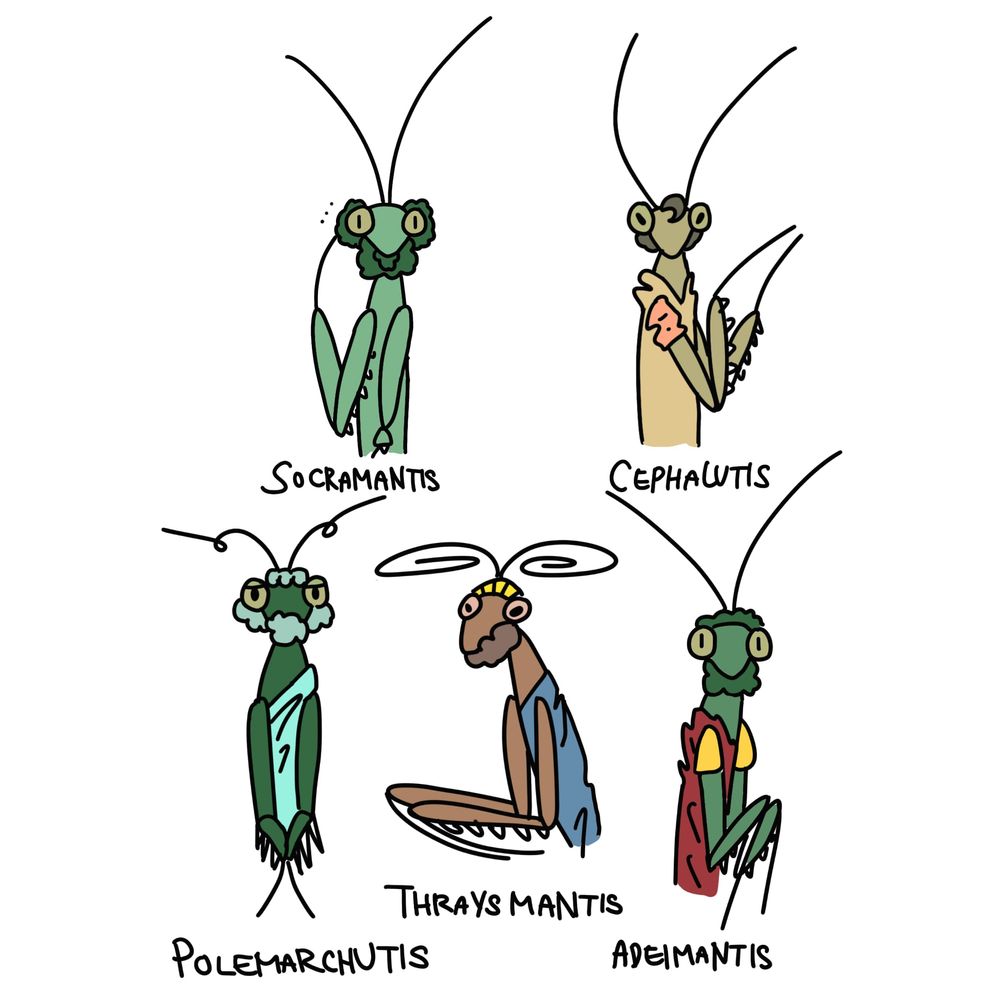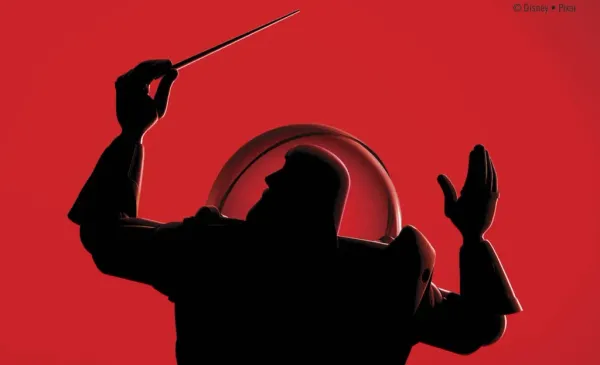Quite a lot of people have heard of Plato’s The Republic. I thought it would be interesting to imagine it if it was written by a praying mantis. The entire book is super lengthy so I’m going to break it down into parts.
Disclaimer: This is not representative of the full text of The Republic, and it is a mere summary of key ideas in an interesting way for those who have never read the book before. Also I’m assuming that in this case, mantises have suddenly become sentient and rational. Also I changed all the names to make them more mantisy :D
Book I
I went down yesterday to Prayeus with Glaucontis. Polemarchutis invited us to his house. Thraysmantis, Adeimantis and Cephalutis were there too. After some idle chatter, I decided to propose a dialogue exploring the nature of justice.
“Is justice to simply speak the truth and to pay your debts?” I asked.
“You are quite right”, replied Cephalutis.
“But that is not the correct definition of justice, you boomer.”, I said.
“I fear, Socramantis,” said Cephalus, “that I must go now, for I have to look after the leaves, and I hand over the argument to Polemarchustis and the company.”
Polemarchustis continued to believe that justice is to speak the truth and to pay your debts.
“Listen here, you little shit, if I borrowed a gun from my neighbour, and a day later he came to me drunk, asking me to return the gun so he could commit suicide, would it be just of me to return the gun to him? Would it huh?” I said calmly.
“Certainly not, Mister Socramantis.”
“So what do you think our friends are owed?”
“By logic, I think that assuming our friends do good to us, they are owed our doing good to them in return.”
“And what do you think our enemies are owed?”
“It’s quite a dark interpretation but assuming our enemies do evil to us, they are owed our doing evil to them in return.”
“Does that mean that justice is the art which gives good to friends and evil to enemies?”
“I think so.”
“But how do we know who are our friends and who are our enemies? Surely it is impossible to know for certain?”
“That would be right.”
“And surely our friends could one day turn into our enemies and vice versa?”
“I cannot disagree.”
“Do you think that justice should be used to harm anyone?”
“It should be used to harm our enemies.”
“Will not mantises who are injured be deteriorated in that which is the proper virtue of justice?”
“Indisputably.”
“Then your definition of justice leads to the deterioration of justice. That cannot be.”
“Well, what other definitions of justice could there be?”
It was at this point that Thrasymantis stood up and proclaimed that justice is “nothing else than the interest of the stronger.”
“What do you mean?” I said.
“When governments in power create laws, are they not making these laws according to their form of justice, which ultimately are in their interests?”
“That is an interesting observation, Thrasymantis. Now, tell me, do you believe that it is just for subjects to obey their rulers?”
“I do believe so.”
“Do the rulers of states sometimes make mistakes, or are they completely perfect in decision-making?”
“They are fallible to errors in judgement, just like any human being.”
“And by your logic, when rulers create laws without any mistake in decision-making, they create them according to their own interest?”
“You have never been more correct, Socramantis.”
“So when rulers create laws with mistakes in their decision-making, these laws go against their interest?”
“I guess that must be right.”
“So your definition of justice is wrong, you fool.”
“I see it so clearly now.”
“Dummy dumb dumb,” said Socramantis.
“Well, Socramantis, what about this: Justice is nothing else than what the stronger believes is in his or her interest.”
“If the stronger is mistaken in his or her belief, can he or her really be considered to be the stronger? Can one who is mistaken really be stronger than one who is not?”
“Uhh…”
“Furthermore, can you tell me that it is unjust for a physician to look out for the interest of him or herself and not the patient?”
“I cannot.”
“And in this allegory, the physician is the stronger, for the physician has the capability to heal or poison the patient’s body?”
“Yupz.”
“So your definition of justice has been utterly defeated. But fret not, those two definitions you two dumbos gave were partially accurate, but lack universality of a definition.”
Drawing by my friend, Ying Kit :D
-TO BE CONTINUED IN BOOK II-



